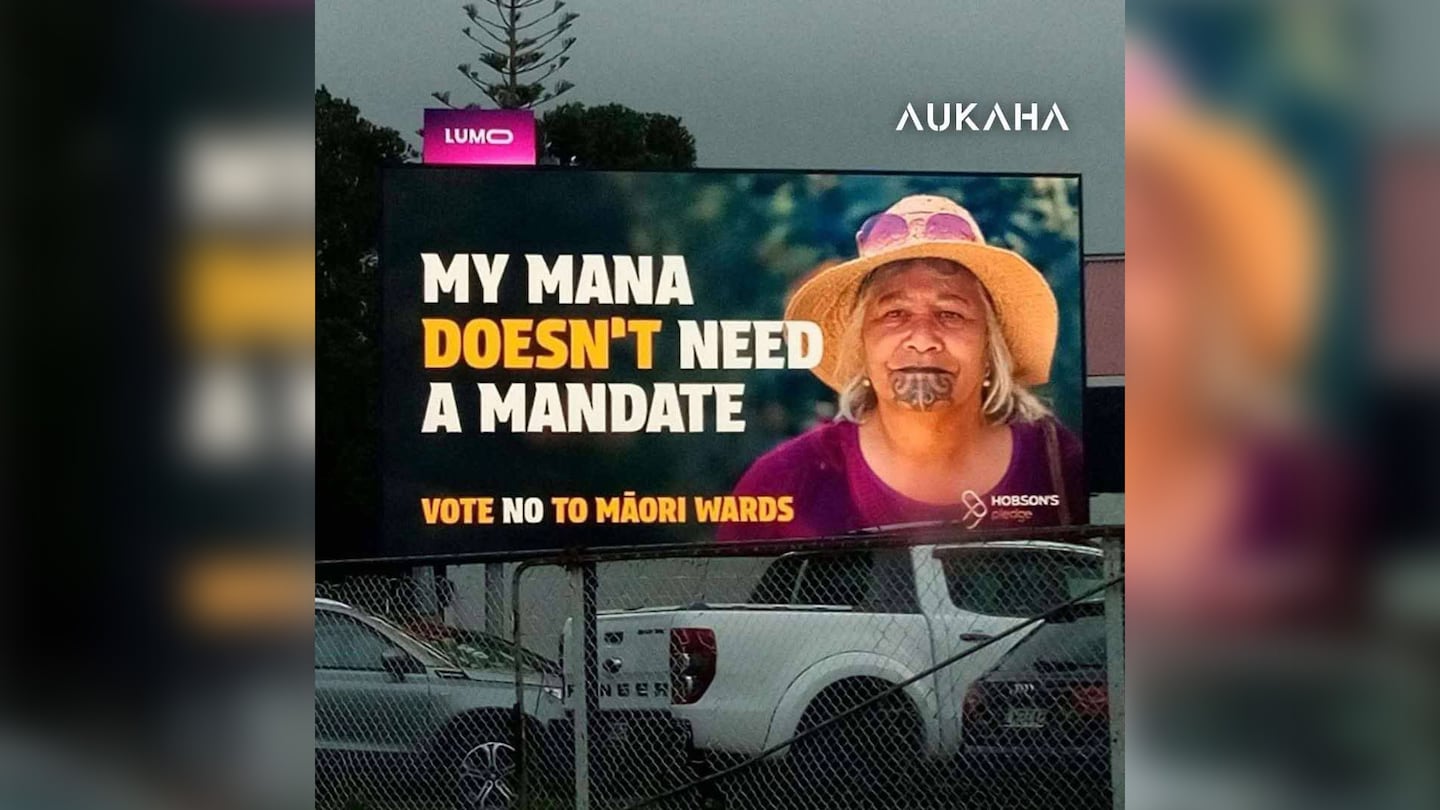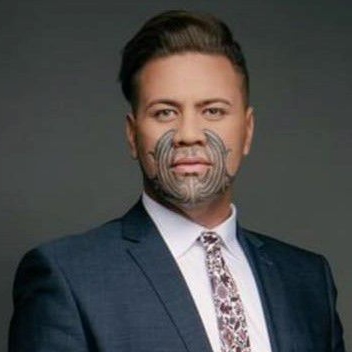A Rotorua woman says she is devastated by the use of her image on a campaign led by Hobson’s Pledge urging people to vote against Māori wards.
Ellen Tāmati, who proudly wears her moko kauae, spoke to Aukaha News and explained that the left side of her moko represents Te Arawa waka, and the right side, Mātaatua waka.
Her whānau say the image was sourced from stock image platform Shutterstock, and that they have since laid a complaint.
“The licence they purchased to use this image wasn’t for commercial purposes.”
Tāmati says she only found out about the billboard after receiving panicked calls from her whānau.
“I got woken up at 1.40am by my mokopuna in Waharoa. She kept ringing and ringing to wake me up and she told me what was happening.”
Her mokopuna, Anahera Parata, says the family strongly disagrees with the message behind the campaign.
“I can’t imagine being Nan. Having to face our iwi when her face is being plastered all over billboards supporting a message that none of us believe in.”

The billboard is part of a wider campaign pushing for local referendums on Māori wards, following the Government’s repeal of legislation that had previously protected these seats from being overturned by public vote. Critics say the move undermines Māori representation at the local government level.
Billboards have reportedly been spotted on Clayton Road in Rotorua, as well as in Hamilton, Whangārei, and Christchurch.
Immediate removal
In a statement to Te Ao Māori News, Hobsons Pledge say they have contacted the billboard company and have asked to have the billboards removed immediately.
“While the intent of the campaign was to promote an important conversation about democratic fairness and equal voting rights for all New Zealanders, we are saddened to see that this billboard has caused personal upset. That was never our intention.”
“We believe in having respectful and constructive conversations about Māori Wards. We hold the view that race-based electoral divisions are unnecessary and undermine equal suffrage, particularly when many Māori candidates are already successfully elected through general seats at both the local and national level.”




